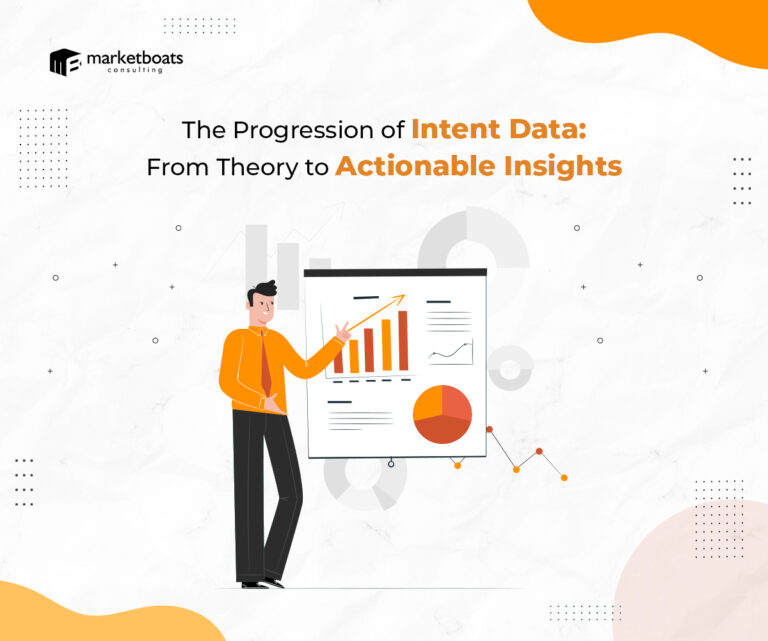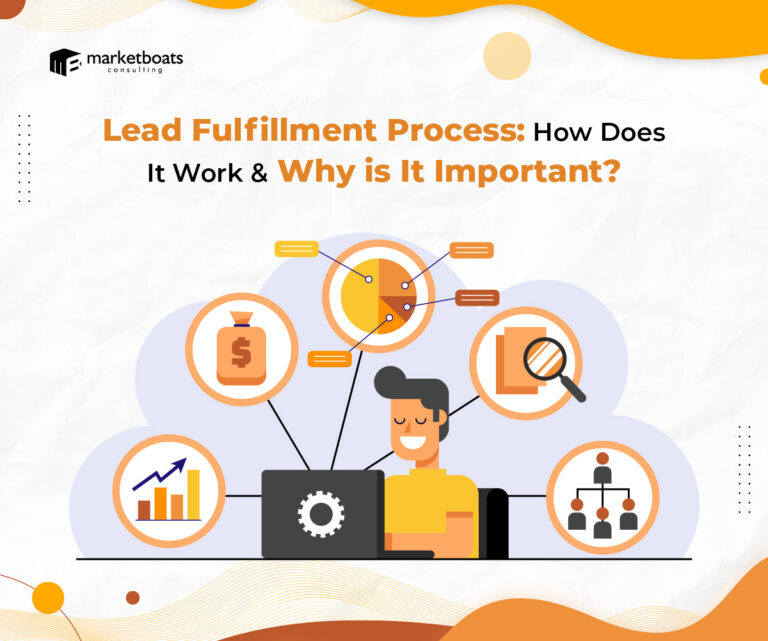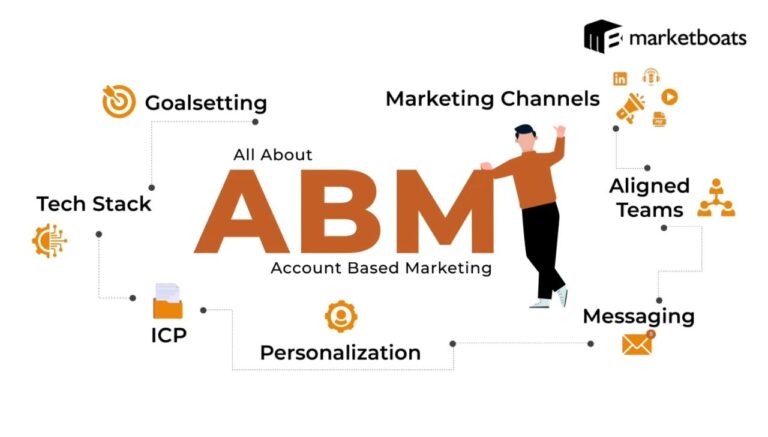Creating a robust brand presence is essential for B2B companies aiming for success in today’s competitive environment. Effective B2B brand awareness campaigns have emerged as a formidable technique for establishing credibility, engaging with audiences, and enhancing customer relationships in the long run. As the B2B landscape continues to evolve, these campaigns have grown significantly critical in driving business growth.
Failure to recognize that clients who are unaware of the existence of a company cannot engage with them underscores the paramount importance of B2B brand awareness campaigns. Notably, unlike B2C marketing, B2B buyers navigate a more complex journey involving various decision-makers and touchpoints, making brand awareness creation one crucial step in captivating prospects’ attention.
This blog aims to highlight the substantial significance of deploying a successful B2B brand awareness campaign and provide guidelines for creating one.
Understanding the Target Audience
Constructing a successful marketing strategy for brand awareness necessitates a comprehensive grasp of the targeted audience. By determining the intended audience and detailing buyer personas, B2B brands can customize their promotions to strike a chord with their ideal customers. Market research is critical for acquiring valuable insight into the requirements, discomforts, and incentives of the targeted audience.
Here’s how to set up a marketing strategy for brand awareness:
- Identifying the Target Audience: It involves determining the specific industries, businesses, and individuals most likely to be interested in the products or services offered. By narrowing down the target audience, businesses can focus their efforts and resources on reaching the right people
- Defining Buyer Personas: Buyer personas are fictional representations of the ideal customers within the target audience. They help businesses understand the characteristics, preferences, and behaviors of their potential customers. Defining buyer personas involves creating detailed profiles that include demographic information, job titles, pain points, goals, and decision-making criteria. These personas serve as guiding tools throughout the B2B brand awareness strategy development process, ensuring that the messaging and content resonate with the intended audience
- Conducting Market Research: Market research is crucial for understanding the needs, pain points, and motivations of the target audience. It involves gathering data and insights about the industry, competitors, market trends, and customer behavior. Various research methods can be employed, such as surveys, interviews, focus groups, and data analysis. Through market research, businesses can gain a deeper understanding of their target audience’s preferences, challenges, and expectations, allowing them to develop campaigns that effectively address these factors.

Crafting a Strong Brand Message
Creating a robust brand message is a crucial step in constructing successful B2B brand awareness campaigns. When a brand message is well-crafted and persuasive, it efficiently conveys a brand’s unique and distinct value proposition to the intended audience.
These are some of the critical factors that must be taken into account when creating a marketing strategy for brand awareness:
- Clearly Defined Strategy and Brand Value Proposition: An effective brand message starts with a clearly defined strategy and brand value proposition. Companies that view their brand value proposition as powerful and effective are likelier to amplify their brand and achieve higher returns on brand marketing investment. It is crucial to identify and articulate the unique value that the brand offers to its target audience.
- Establish Brand Trust: Brand awareness plays a vital role in establishing brand trust. When a brand becomes recognizable and familiar to consumers, it creates a sense of trust. By giving the brand a personality, providing avenues for sincere communication, receiving feedback, and telling a compelling brand story, trust can be built with the target audience.
- Differentiation and Unique Value Proposition: Crafting a powerful brand message is contingent on clearly conveying how the brand distinguishes itself from competitors and communicates its distinct value proposition. It is crucial to comprehend the competitive landscape and recognize what distinguishes the brand to develop a message effectively tailored to the target audience. Emphasizing the brand’s exclusive advantages and value proposition results in a persuading message that captivates potential customers’ attention.
Consistency in Brand Identity
Consistency in brand identity is crucial when building effective B2B brand awareness campaigns. It ensures that the brand message, visual elements, and overall brand experience remain cohesive and recognizable to the target audience. Here are some key points to consider when focusing on consistency in brand identity:
- The Importance of Brand Awareness: Brand awareness is the degree to which customers can quickly and easily recognize or recall a brand regardless of the environment. In the realm of B2B marketing, boosting brand awareness entails instilling memorability and unmistakable identification unique to your intended market.
- Maintaining a Strong Brand Identity through Consistent Messaging: Consistent messaging is of utmost importance to achieve and retain a clear brand identity. The messaging must be concise, aligned with the brand’s values, and unique selling proposition. By frequently communicating the brand’s key messages across multiple channels and touchpoints, businesses can reinforce their brand identity and enhance awareness among their target audience.
- Visual Brand Identity: Consistency in visual elements such as logos, color palettes, typography, and imagery is crucial for creating a strong and recognizable brand identity. These visual elements should be used consistently across all marketing materials, including websites, social media profiles, advertising campaigns, and printed materials. This visual consistency helps to reinforce brand recognition and establish a cohesive brand image.
Marketing and Thought Leadership
To build effective B2B brand awareness campaigns and establish your brand as a thought leader in the industry, it is crucial to focus on marketing and thought leadership strategies. Here are some key points to consider:
- Establishing Thought Leadership through Value-Adding Educational Content. Crucial to this endeavor is offering valuable and informative material that caters to your intended audience’s requirements and obstacles. This content can manifest as blog posts, case studies, whitepapers, videos, webinars, or industry insights. By dispelling useful information and perspectives, you’ll elevate your brand as a reliable resource and establish credibility.
- To effectively engage your target audience, prioritize addressing their specific pain points and challenges. Thoroughly researching and analyzing market and audience data can provide insight into the issues faced by your audience and allow you to offer solutions that can help them overcome these obstacles. Focus on tailored content that speaks directly to your audience’s unique needs.
Strategic Use of Digital Marketing Channels
In order to achieve the highest possible reach and influence for your thought leadership content, it is crucial to utilize appropriate distribution channels. Consider utilizing social media platforms, industry publications, guest blogging opportunities, and email newsletters to amplify your content and effectively engage a broader audience.
Various digital marketing channels can be leveraged to build brand awareness for B2B companies. These channels include:
- Content Marketing: Creating valuable and relevant content that resonates with your target buyer personas is a powerful way to build brand awareness. Share informative blog posts, whitepapers, case studies, and industry insights that address your target audience’s pain points and challenges.
- Social Media Marketing: Establish a strong presence on social media platforms where your target audience is active. Develop a social media marketing strategy that educates, engages, and builds trust with your audience. Share valuable content, participate in industry discussions, and interact with your followers.
- LinkedIn Campaigns: LinkedIn, being a professional networking platform, provides excellent opportunities for B2B brand awareness campaigns. Utilize LinkedIn ads, sponsored content, and targeted campaigns to reach your desired audience and increase brand reach and engagement.
- Email Marketing: Build an email list of interested prospects and customers and use email marketing campaigns to deliver targeted content, promotions, and updates. Personalize your emails and provide valuable insights or offers that drive engagement and build B2B brand awareness.
- Influencer Marketing: Collaborate with industry influencers and thought leaders with a significant following and credibility in your niche. Their endorsement and promotion of your brand can help expand your reach and enhance B2B brand awareness.
Measurement and Optimization
Now, how to measure B2B brand awareness?
Effective measurement and optimization of B2B brand awareness campaigns require consideration of both quantitative and qualitative metrics.
Quantitative measurements, such as ROMI, customer engagement, website traffic, social media metrics, and lead generation, provide numerical data to track the impact and reach of brand awareness efforts.
Qualitative measurements, on the other hand, focus on brand perception, customer feedback, and brand awareness surveys to gauge the awareness, perception, and recognition of the brand among the intended audience.
By analyzing both quantitative and qualitative data, valuable insights can be gained into the effectiveness of campaigns, enabling data-driven adjustments to optimize their performance.
Conclusion
Looking ahead, the significance of B2B brand awareness campaigns will continue to grow as companies strive to differentiate themselves, build trust, and capture the attention of their target audience. The key to obtaining long-term benefits is by establishing a robust connection with customers and making the brand memorable during the purchase process.
To thrive in the competitive B2B industry, companies must invest in brand marketing and prioritize brand awareness campaigns. B2B brands can gain invaluable insights by measuring reach, engagement, brand perception, and sales impact, leading to data-driven adjustments that optimize performance.
Are you ready to hype up your brand awareness strategy? Marketboats is here to help!
Marketboats Consulting Inc has launched an innovative cloud-based solution, Campaign Management and Lead System (CALS), which streamlines B2B lead generation campaigns across multiple channels and partners. CALS offers unparalleled transparency, operational efficiency, and analytics.
By utilizing CALS, you can access a comprehensive platform that empowers you to coordinate B2B lead and demand generation campaigns effortlessly. CALS provides a 360-degree view of qualified leads and extensive campaign performance reports that guarantees top-of-the-line interaction quality at the start of the sales funnel.
Get started today!

















